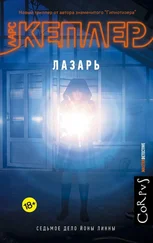‘Because we store certain information together with an awareness that those are genuine memories — like a sort of code, an introductory note, a prefix.’
‘So shouldn’t that code still be in his brain?’ Joona persists.
‘But extracting that at the same time as his memories...’ she says, shaking her head.
‘Is there anyone who could do that?’
‘No,’ she replies, closing her notepad.
‘Erik Maria Bark claims he can.’
‘Erik is very good at... he’s probably the best person in the world at putting patients into a state of deep hypnosis, but his research isn’t evidence-based,’ she says slowly, and there’s a glint of something in her eyes.
‘Do you believe what the papers have been saying about him?’
‘I have no way of judging that... But he does have a leaning towards the perverse, the psychotic...’
She stops herself.
‘Is this conversation actually about him?’ she asks bluntly.
‘No.’
‘But it’s not about a friend of yours, is it?’
‘It never is... I’m a detective with the National Criminal Investigation Department, and I need to question a witness suffering from organic memory loss.’
The corners of Anna Palmer’s mouth twitch.
‘That would be unethical, seeing as anything said under hypnosis is the opposite of reliable, and has no place in a legal context,’ she says curtly.
‘This is about detective work, not—’
‘I can promise you that no serious practitioner of clinical hypnosis would do this,’ she says, raising her voice and looking him in the eye.
Erik walks across the bridge at Sickla, with his cap pulled down and his head lowered, then makes his way around the heights of Hammarbybacken, where Benjamin learned to ski, and heads into the forest.
It’s practically impossible to move in Stockholm without getting caught on camera. There are speed cameras along the roads, cameras monitoring the boundary of the congestion-charging zone, traffic surveillance cameras at junctions, tunnels and bridges. There are security cameras in shops, trains, buses, ferries and taxis. Twenty-four hours a day, petrol stations, car parks, harbours, terminals, railway stations and platforms are monitored. Banks, department stores, shopping centres, plazas, pedestrianised streets, embassies, police stations, prisons, hospitals, fire stations are all watched.
Erik is extremely tired, and the blisters on the soles of his feet burst as he makes his way through the forest towards Björkhagen.
The sky is growing dark, and Erik feels his legs shake when he stops in the little park behind the house where Nestor, his former patient, lives.
Erik follows the path to a wooden door with a tarnished bronze letterbox. The colour of the building reminds him of wet foam-rubber.
There’s a light on in the kitchen on the ground floor.
From here he can see right into Nestor’s living room. Erik switches windows and sees Nestor sitting in an armchair.
There’s no sign of anyone else in the flat.
Erik’s hands are shaking and he feels as though he can’t take another step as he rings the front door.
‘Can I come in?’ he asks as soon as Nestor opens the door.
‘This is unexpected,’ Nestor mutters. ‘I’ll p-put some coffee on.’
Nestor lets Erik in, closes and locks the door, then disappears inside the flat. Erik takes his shoes off with a sigh, hangs up his crumpled jacket, and smells his own sweat. His socks have stuck to his bleeding heels and his cold fingertips are itching in the heat of the hallway.
He knows that Nestor lives in the same flat he grew up in. The ceilings are low and the oak parquet floor is so old that the varnish has worn off. There are dog-shaped ornaments everywhere.
Erik walks through the living room. The single cushion on the sofa is threadbare and on the low table are a pair of glasses and a crossword, beside a large figurine of hunting dogs and dead pheasants.
In the kitchen Nestor is setting out cups and a plate of biscuits. There’s a frying pan containing sausage and potatoes on the stove.
‘You told me I could ask for a favour, anything at all,’ Erik says, sitting down at the table.
‘Yes,’ Nestor says, nodding emphatically.
‘Can I stay here for a few days?’
‘Here?’
A sceptical, boyish smile flits across Nestor’s face.
‘What for?’
‘I’ve had a bit of a row with my girlfriend,’ Erik lies, leaning back.
‘You’ve got a g-girlfriend?’
‘Yes,’ Erik replies.
Nestor pours coffee into their cups and says he has a spare room with a guest bed already made up.
‘Could I have some of the food that’s left over?’
‘Of c-course, I’m sorry,’ he says, switching the hotplate on.
‘You don’t have to warm it up for me,’ Erik says.
‘Don’t you want...?’
‘No, it’s fine.’
Nestor scrapes the food on to a plate and puts it in front of Erik before sitting down opposite him.
‘Have you thought any more about getting a dog?’ Erik asks.
‘I n-need to save up some money,’ Nestor replies, lifting his coffee-spoon a few millimetres and surreptitiously looking at his reflection.
‘Of course,’ Erik says as he eats.
‘I work over there at the ch-church,’ Nestor says, gesturing towards the window.
‘At the church?’ Erik asks, feeling a shiver spread down his spine.
‘Yes... well, not really,’ Nestor smiles, holding one hand in front of his mouth. ‘I w-work in the pet cemetery.’
‘The pet cemetery...’ Erik nods politely, looking at Nestor’s slender hands and the yellowing polyester shirt under his pullover.
Erik finishes the food and drinks his coffee as he listens to Nestor telling him about the oldest cemetery for domestic pets in Sweden, over on Djurgården. It was established when the author August Blanche buried his dog there in the nineteenth century.
‘I’m b-boring you,’ Nestor says, getting to his feet.
‘No, I’m tired, that’s all,’ Erik says.
Nestor goes over to the window and looks out. Black shapes are moving against the paler sky, trees and bushes blowing back and forth.
‘It will soon be dark,’ Nestor whispers to his reflection.
There are two greyhounds on the windowsill, next to a pot plant. Nestor touches their heads, out of sight of Erik.
‘Can I use the bathroom?’ Erik asks.
Nestor shows him through the living room, and points to an extra door behind a curtain.
‘This is the old c-caretaker’s flat, but I think of that d-door as an emergency exit,’ he says.
The bathroom has tiles halfway up its walls, with a deep bathtub and a shower curtain with seahorses on it. Erik locks the door and takes his clothes off.
‘The red toothbrush is Mother’s,’ Nestor calls through the door.
Erik stands on the mouldy shower mat in the scratched bathtub, showers and washes the wounds on his body. On top of the bathroom cabinet above the basin is an old light-bulb box. Some lipsticks and a mascara pen stick out from it.
When Erik emerges Nestor is standing in the hall waiting for him. His wrinkled face looks worried.
‘I’d really like to t-talk about something... it’s something that...’ he begins.
‘What is it?’
‘I... what do I d-do if the new dog dies?’
‘We can talk about that tomorrow.’
‘I’ll show you to the g-guestroom,’ Nestor whispers, turning his face away.
They go back into the living room again, past the kitchen to a closed door that Erik hasn’t noticed before because it’s on the far side of a cupboard.
Above the bed in the spare room is a large poster of Björn Borg kissing the Wimbledon trophy. On the wall opposite is a shelf full of porcelain dogs.
Читать дальше
Конец ознакомительного отрывка
Купить книгу
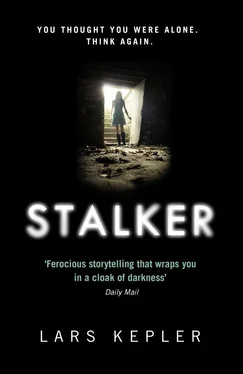
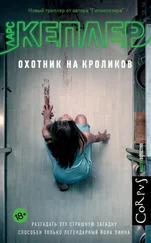
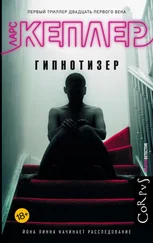
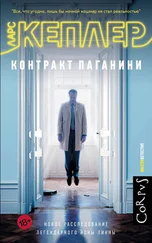
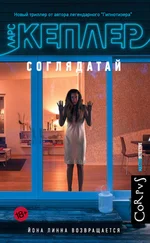
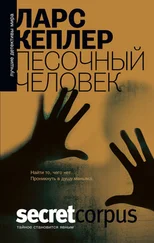
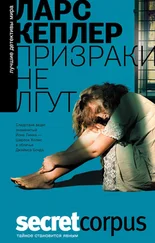

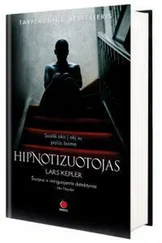
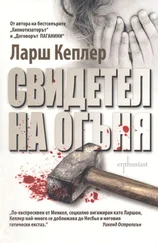
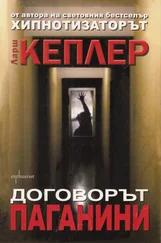
![Ларс Кеплер - Гипнотизер [litres]](/books/402890/lars-kepler-gipnotizer-litres-thumb.webp)
